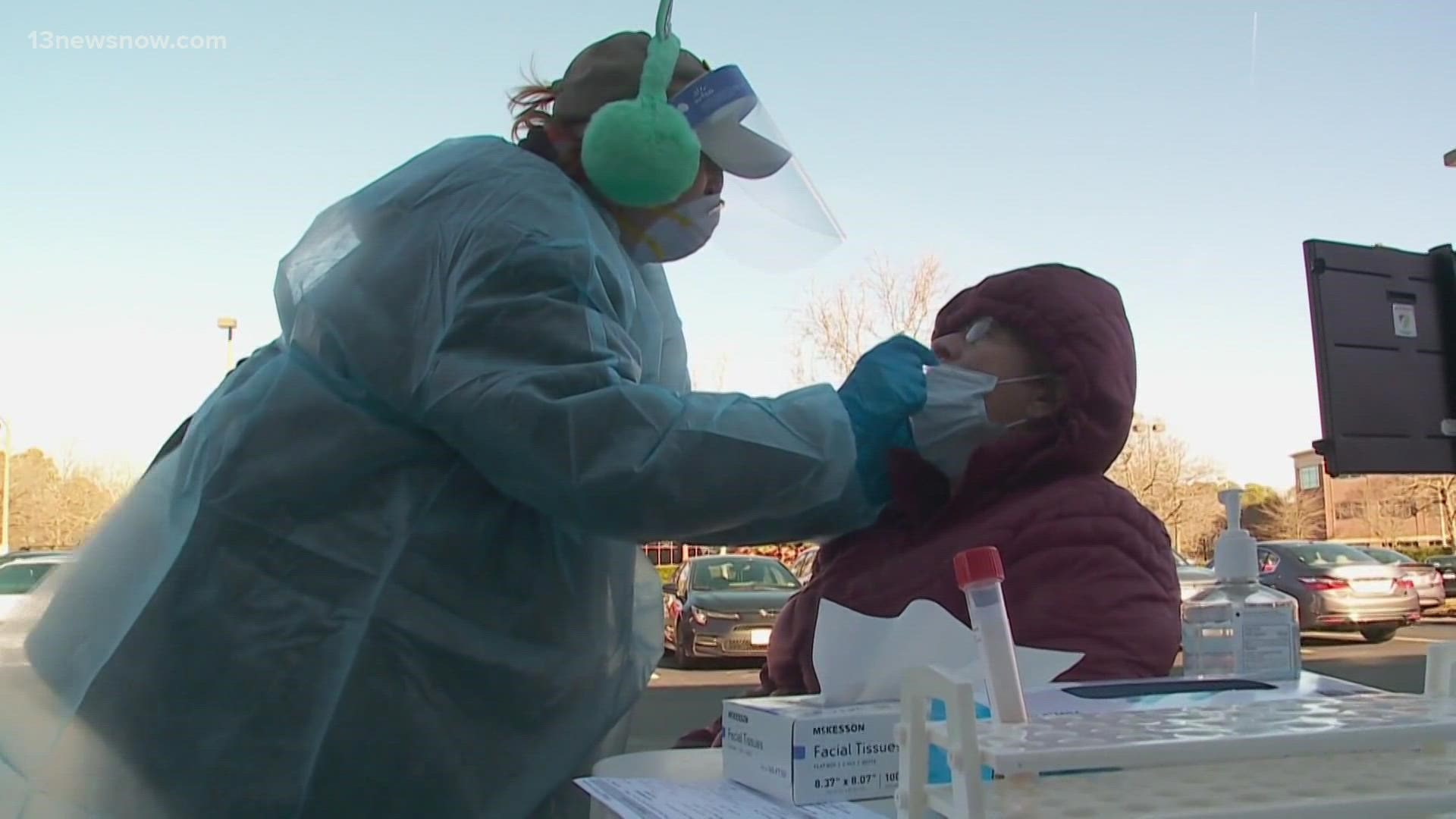RICHMOND, Va. — Author's note: The video above is on file from a separate story about the availability of COVID-19 tests that aired on Jan. 18, 2022.
Virginia Governor Glenn Youngkin announced a COVID-19 Action plan for his administration on Thursday.
The plan, which was established with his eleventh executive order since taking office on January 15, was designed to provide organizations with tools to keep combatting the COVID-19 pandemic.
“While many families have experienced tragedy over the last two years, Virginians have truly embodied the spirit of Virginia as they came together to fight a common enemy — COVID-19,” wrote Governor Glenn Youngkin in a statement.
“Today’s announcements are designed to give Virginians the tools and resources needed to make the best decisions for their families, strengthen our hospital systems, and ensure a strong recovery as we encounter new challenges associated with the pandemic that has become part of our everyday life.”
His plan is broken down into three essential parts:
- The COVID-19 Vaccine Marshall Plan will encourage the 1.6 million Virginians who are still unvaccinated to get vaccinated, but by "empowering Virginia through choices, not mandate." Youngkin plans to work with the Virginia Secretary of Health to shift resources on vaccine education and outreach to communities that have been underserved. He will also host and attend vaccine clinics across the Commonwealth and communicate with other leaders nationwide.
- Expanded Healthcare Flexibility and Support. This prong of the plan aims to free up healthcare providers facing staffing shortages. It will allow hospitals and nursing homes to expand bed capacity past normal regulations, allow out-of-state healthcare workers to help and set up "appropriate exemptions to scope of practice requirements. It also lets more places offer COVID-19 vaccines.
- Re-prioritizing COVID-19 testing. Youngkin said his administration will shift testing guidelines away from pre-screening asymptomatic people, and ask healthy people who are mildly sick to use discretion when thinking about testing. They also want to expedite shipments of rapid tests that have been ordered, but are pending, and ask agencies that have unused tests to share those with schools, hospitals and nursing facilities.
Youngkin's reprioritization of COVID-19 tests also means the administration will set aside rapid tests for students exposed to the virus in school, healthcare and essential workers, people who are older than 65 or particularly vulnerable to COVID-19 and people who have serious medical conditions (and their caregivers).

